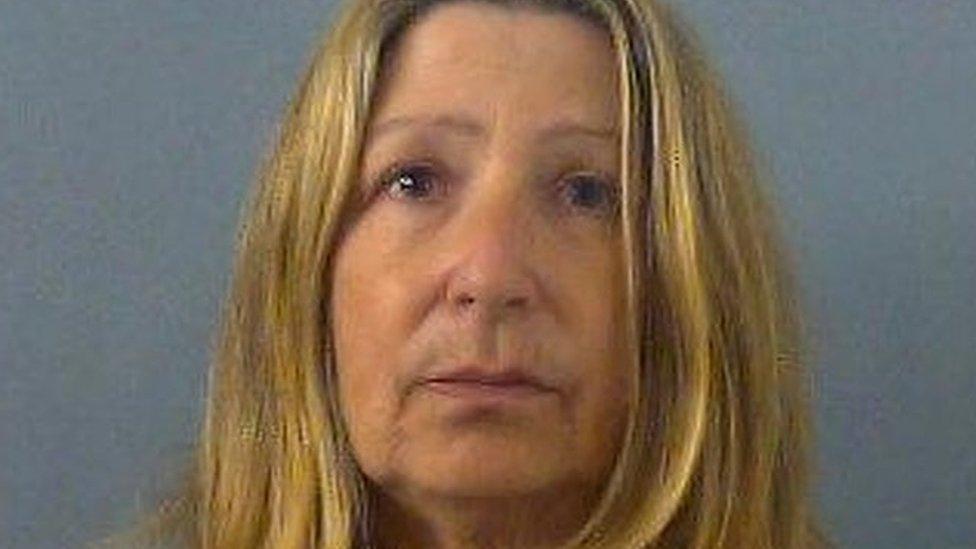Anthony Sootheran: 'Brazen' plot to steal millionaire's fortune
- Published
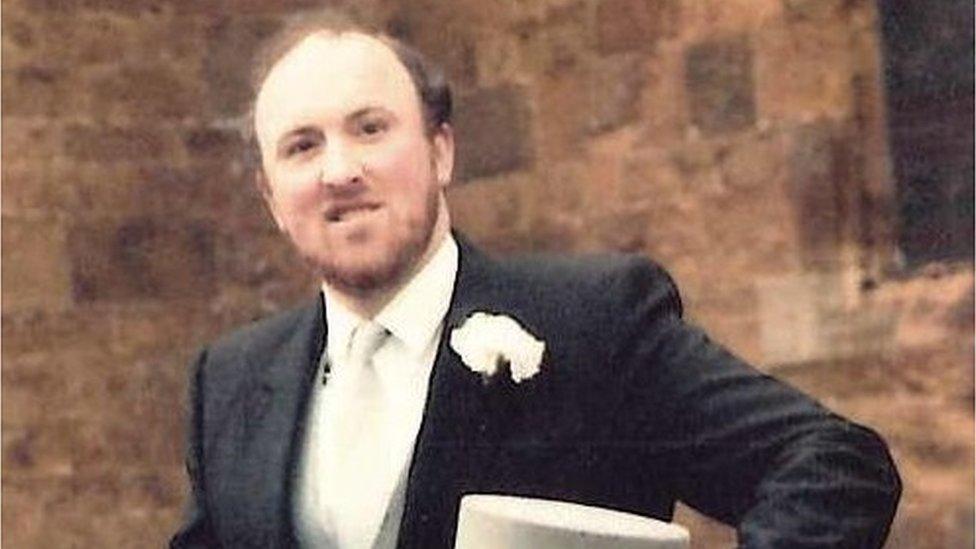
Anthony Sootheran's mental health problems escalated soon after his marriage in 1985
Lynda Rickard, who has been found guilty of the murder of Anthony Sootheran, posed as his "special friend". To the outside world, the former social worker appeared to be caring for her wealthy live-in landlord. In reality she was depriving him of food and medical care in order to hasten his death and steal his fortune.
The millionaire, who died aged 59, would never know Rickard had spent tens of thousands of pounds of his family's money on herself.
He was also unaware she had forged his mother's will and was plotting to forge his.
"This is a case about greed. Casual, opportunistic greed," prosecutor Oliver Saxby QC told the jury at Reading Crown Court.
The prosecutor said her behaviour developed into something "utterly routine and brazen; and then, finally, into something much more sinister".
"Lynda Rickard doesn't have a stop button but you can be perfectly satisfied [she does have] a fast-forward button," he added.
Mr Saxby said her American-born husband Wayne - a "see no evil, hear no evil defendant" - failed to intervene as their landlord wilted away.
However, he said Mr Rickard, 66, who has been found guilty of causing or allowing the death of vulnerable adult, was in "close proximity... over the period Anthony declined".
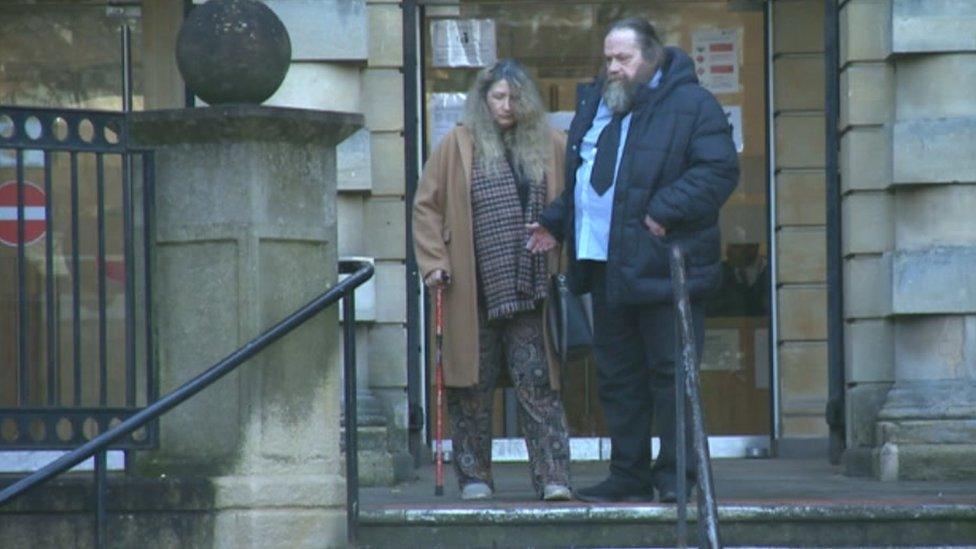
Lynda Rickard (left) has been found guilty of the murder of Mr Sootheran, while her husband Wayne has been found guilty of causing or allowing his death
The Sootherans were a wealthy family, owning properties in Oxfordshire and land in Yorkshire.
His ramshackle and neglected final home - High Havens Farm at South Newington - was nevertheless craved by Lynda Rickard.
The farmhouse was in a poor state but with 60 acres of land and other outbuildings it remained valuable.
It sold for more than £1.8m in 2018, four years after Mr Sootheran was killed and six years after the death of his mother, Joy.
Had Rickard's forged wills not aroused suspicion, she would have inherited half of Mrs Sootheran's £1.5m estate and subsequently more than £1.1m from Mr Sootheran, including the farm.
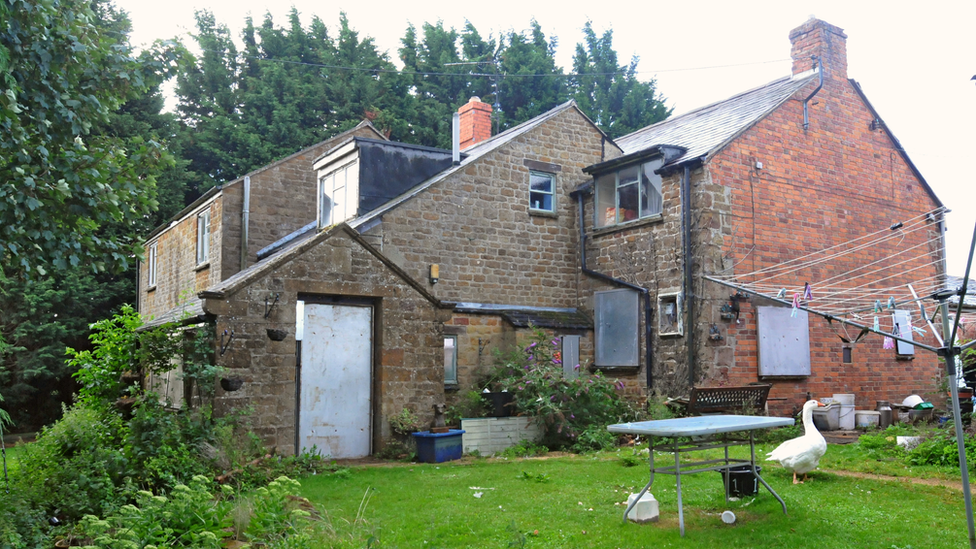
The millionaire lived with the Rickards at High Havens Farm
Jurors heard how Rickard, 62, dominated Mr Sootheran, a "popular" but "complex" man who suffered from episodes of poor mental health.
The auctioneer clerk's problems were soon evident to his former wife, Dawn Hughes, who he married in 1985.
Unable to cope with the birth of their daughter, Hannah, in 1988, he left home for two weeks.
Soon afterwards he moved out when the marriage broke down.
In 2008, he and his mother moved back to High Havens Farm to live with the Rickards, who had been there as tenants since 2006.
Lynda Rickard struck a deal to earn £47,000 a year to care for them while paying no rent.
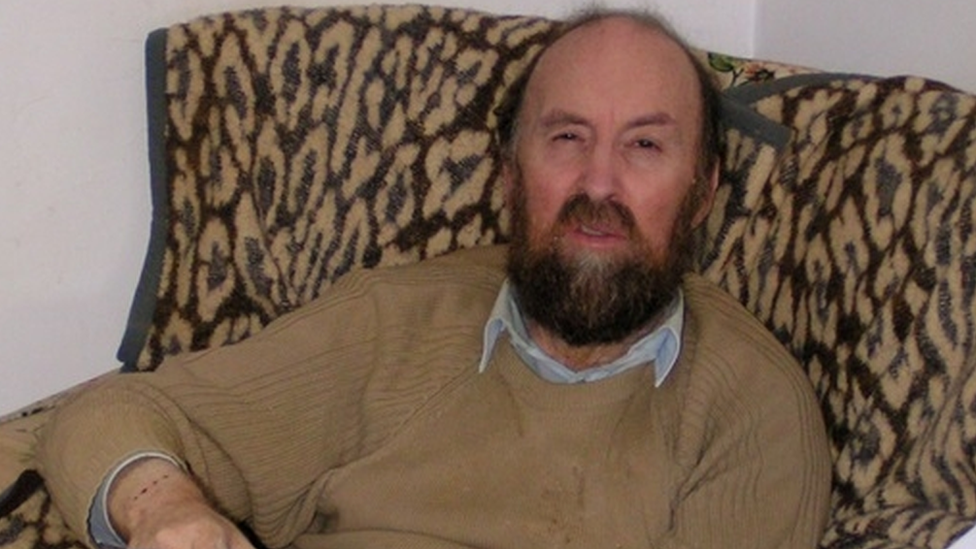
Mr Sootheran lost a third of his body weight over 15 months
Despite the high salary, she began to help herself to Mrs Sootheran's fortune.
Investigators found suspicious transactions amounting to between £50,000 and £167,000. Another £40,000 to £133,000 was taken from Mr Sootheran's accounts.
They were offences that Rickard eventually admitted at the start of a previous, aborted trial in January 2020. She also confessed at that stage to forging both wills.
Mrs Sootheran's document was changed to "safeguard Anthony and Lynda's future", it said. "They have a special friendship," the false will read.
The Rickards' daughter was bequeathed a flat while their son was given a car "for all the times he helped me to get in and out of it".
Mr Sootheran's forged will would have given Lynda Rickard a third of his estate, thereby depriving his daughter of much of her inheritance.
When Hannah Sootheran was eventually granted probate, the Rickards even went to court in a failed attempt to uphold the forged document.
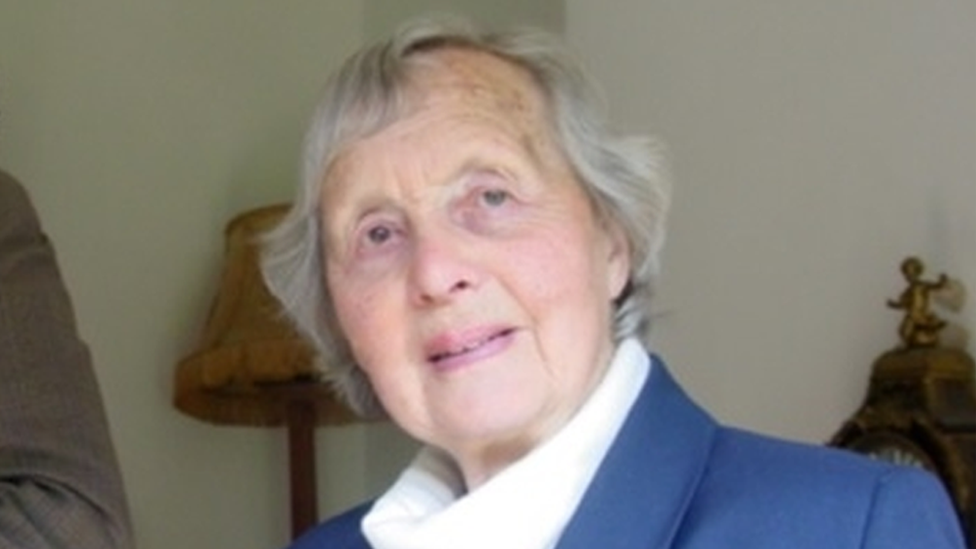
Joy Sootheran left an estate worth £1.5m
Ms Sootheran had also been deprived of contact with her father.
Some of her visits were cancelled by Mrs Rickard on suspicious pretexts, the phone was never answered and she was denied the code for the lock on the farm gates.
Unable to reach her father, Ms Sootheran gave him mobile phones which unaccountably broke or had the setting changed to block incoming calls.
A final visit to give him a Christmas present - a belt to replace the twine holding up his trousers - was thwarted in December 2013.
She recalled how she was "very tearful" after being told her father wanted to be left alone.
As she drove away, he phoned to ask: "Where are you? I do want to see you."
Confused by the difficulties in their relationship, she replied: "I'm too upset now. This is too much, I can't deal with this."
She would never again see her father, who died the following March.
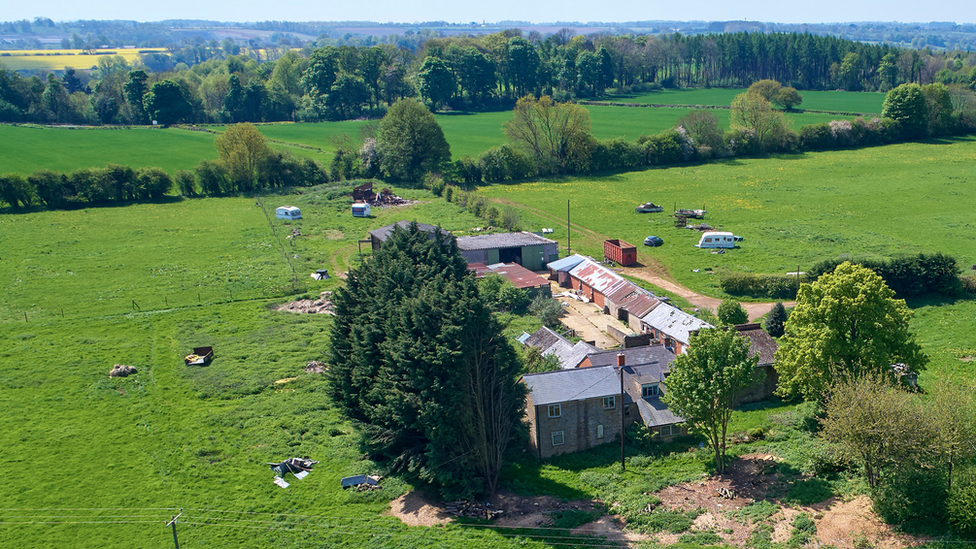
The farm sold for £1.8m in 2018, four years after Anthony Sootheran's death
"Anthony's isolation suited Lynda Rickard - it allowed her to tighten the net around him and exert her control over him and his affairs," the jury heard.
The millionaire was wasting away, losing a third of his body weight in 15 months.
Geriatrician Dr Peter Kroker told the court that much of this was self-inflicted, due to Mr Sootheran's mental health problems.
However, he said the millionaire had "little food intake" after two falls at home on 22 and 23 February 2014.
Lynda Rickard told the 111 NHS line her "friend" had fallen and was unwilling to have medical help.
She failed to follow the call-handler's advice to take him to a hospital, which would have treated his malnutrition.
Instead, she ignored a developing, life-threatening pressure sore, leaving him lying in severe pain on a soiled mattress next to a tarpaulin to preserve the carpet.
His room - apparently cleaned after death - contained a drink which would have been out of reach and an untouched plate of food.
Senior crown prosecutor Robbie Weber said: "Getting Anthony help was the last thing on Lynda Rickard's mind. She needed him to die in order to benefit from his fortune.
"Anthony was a vulnerable man... in her thrall and no doubt too scared to say anything."

Follow BBC South on Facebook, external, Twitter, external, or Instagram, external. Send your story ideas to south.newsonline@bbc.co.uk, external.
Related topics
- Published28 May 2021
